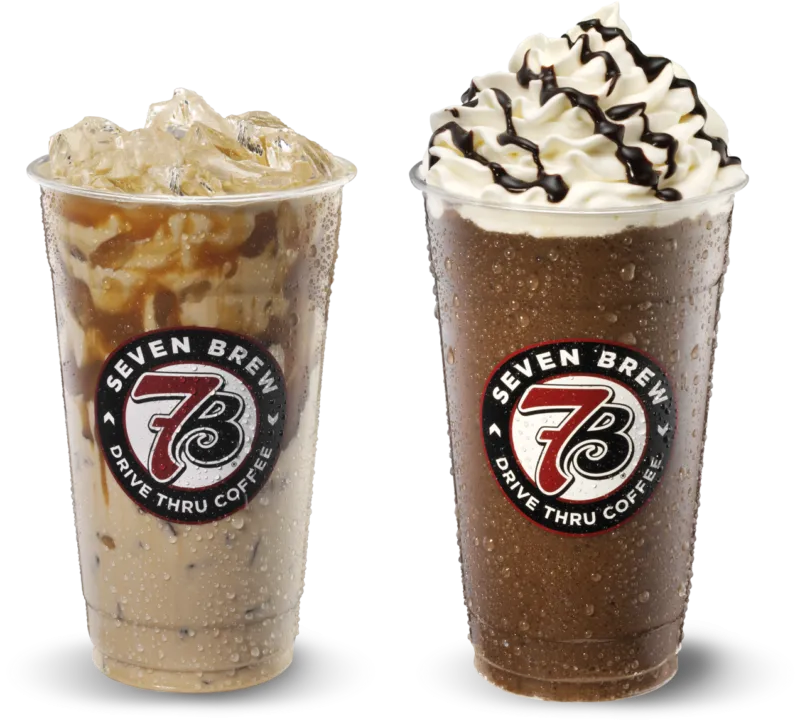Hey there, coffee lovers! Let's talk about something that every true coffee enthusiast dreams about: 7 brew points. If you're someone who takes their coffee seriously, then you're in for a treat. These 7 brew points aren't just random tips; they're the secrets to unlocking the full potential of your favorite brew. Whether you're a casual drinker or a full-blown coffee connoisseur, this guide will change the way you think about your morning cup. So grab your favorite mug, sit back, and let's dive into the world of coffee perfection.
Now, before we get into the nitty-gritty, let's be real for a second. Coffee isn't just a drink; it's an experience. It's about the aroma, the taste, the ritual, and, most importantly, the quality. That's where these 7 brew points come in. They're like the blueprint to making sure every cup you brew is as close to perfection as possible. Trust me, once you master these points, you'll never go back to your old ways.
But why stop at just brewing great coffee? Understanding these 7 brew points also means you're taking control of your coffee game. From sourcing the best beans to mastering the grind size, every little detail matters. And let's not forget the importance of water temperature and brew time. So, if you're ready to level up your coffee skills, keep reading because we've got a lot to cover.
Read also:Green Bay Marketplace Your Ultimate Shopping Destination
Understanding the Basics of 7 Brew Points
What Are Brew Points Anyway?
Alright, let's break it down. The term "7 brew points" refers to seven key factors that influence how your coffee turns out. These points cover everything from the type of coffee beans you use to the equipment you rely on. Think of them as the building blocks of a perfect cup. Each point plays a crucial role, and neglecting even one can lead to subpar results. But don't worry, we'll go over each one in detail so you know exactly what to focus on.
For instance, did you know that the freshness of your coffee beans can make or break your brew? Or that the grind size can completely alter the flavor profile? These are the kinds of insights you'll gain as we explore each brew point. So, whether you're brewing at home or working in a café, understanding these basics is essential for consistent results.
The Importance of Quality Coffee Beans
Choosing the Right Beans
Let's talk about coffee beans because, let's be honest, they're the star of the show. When it comes to the 7 brew points, selecting high-quality beans is non-negotiable. You want beans that are freshly roasted, sourced from reputable suppliers, and ideally single-origin if you're looking for a distinct flavor. But how do you know which beans are the best for your brew? Here are a few tips:
- Look for beans that are roasted within the last two weeks. Freshness matters a lot!
- Consider the altitude and region where the beans were grown. Higher altitudes often produce more complex flavors.
- Experiment with different roast levels. Light, medium, or dark roast? It all depends on your taste preference.
Remember, the beans you choose will set the tone for your entire brewing process. Don't skimp on this step, or you'll regret it later.
Grind Size Matters
Why Grind Size Affects Your Brew
Here's a fun fact: the size of your coffee grind can dramatically affect the taste of your brew. Too fine, and you risk over-extraction, leading to a bitter cup. Too coarse, and you might end up with under-extracted coffee that lacks flavor. Finding the right balance is key, and it all depends on your brewing method.
For example:
Read also:Hard Rock Casino Rockford Your Ultimate Guide To Rock N Roll Entertainment
- Espresso calls for a fine grind to ensure proper extraction.
- French press coffee works best with a coarse grind to prevent grittiness.
- Drip coffee machines typically require a medium grind for optimal results.
Investing in a good burr grinder can make a world of difference. Unlike blade grinders, burr grinders provide consistent particle sizes, which is crucial for achieving that perfect cup every time.
Water Temperature: The Secret Ingredient
Getting the Temperature Just Right
Water temperature is another critical factor in the 7 brew points. Brewing coffee with water that's too hot can lead to over-extraction, while water that's too cool might leave you with a weak, under-extracted brew. The ideal temperature range for brewing coffee is between 195°F and 205°F (90°C to 96°C). But how do you maintain this temperature consistently?
- Use a thermometer to monitor your water temperature if you're super serious about precision.
- Preheat your equipment, like your mug or carafe, to keep the coffee warm longer.
- Let boiling water sit for about 30 seconds before pouring it over your grounds.
Consistency is key here. Even a slight variation in temperature can affect the flavor, so pay attention to this detail if you want to brew like a pro.
Brew Time: Patience Is a Virtue
How Long Should You Brew?
Brew time is another one of those 7 brew points that can make or break your coffee. Different brewing methods require different amounts of time to extract the best flavors from your coffee grounds. For example:
- Espresso typically brews in about 25-30 seconds.
- French press coffee takes around 4 minutes for full extraction.
- Cold brew coffee requires anywhere from 12 to 24 hours for optimal flavor.
Timing your brew is crucial because it ensures that you're extracting just the right amount of flavor without overdoing it. Over-extraction can lead to bitter coffee, while under-extraction might leave you with a sour taste. So, set those timers and be patient—it's worth it!
Water Quality: Don't Forget the Liquid Gold
Why Water Quality Matters
Here's a point that often gets overlooked: water quality. Believe it or not, the water you use to brew your coffee can have a significant impact on the taste. Tap water, for instance, might contain impurities that affect the flavor of your coffee. That's why many coffee enthusiasts recommend using filtered water for brewing.
Consider these tips:
- Use water with a neutral pH level to avoid altering the coffee's natural flavors.
- Invest in a good water filter if your tap water has a strong taste or odor.
- Store your water in a clean container to prevent contamination.
Remember, coffee is about 98% water, so using high-quality water is just as important as using high-quality beans. Don't let poor water quality ruin your perfect brew.
Equipment: The Tools of the Trade
Choosing the Right Gear
When it comes to the 7 brew points, your equipment plays a vital role. Whether you're using a simple pour-over setup or a high-tech espresso machine, having the right tools can make a huge difference in your brewing experience. Here are some things to consider:
- Invest in a good coffee grinder to ensure consistent grind sizes.
- Choose a brewer that suits your preferred method, whether it's drip, French press, or espresso.
- Use a scale to measure your coffee and water ratios accurately.
Having the right equipment not only makes the process easier but also helps you achieve more consistent results. So, don't be afraid to upgrade your gear if it means better coffee.
Brew Ratio: Finding Your Sweet Spot
The Coffee-to-Water Ratio
One of the 7 brew points that often gets overlooked is the coffee-to-water ratio. Getting this ratio right can mean the difference between a strong, flavorful cup and a weak, watery brew. The general rule of thumb is a 1:15 to 1:17 ratio of coffee to water, but this can vary depending on your preferences.
Here's how you can experiment:
- Start with a 1:16 ratio and adjust based on taste.
- Use a scale to measure both your coffee and water for precision.
- Keep a journal of your ratios to track what works best for you.
Remember, there's no one-size-fits-all solution here. Your ideal ratio might be different from someone else's, so don't be afraid to experiment until you find your sweet spot.
Storage: Keep Your Beans Fresh
Prolonging the Life of Your Coffee
One of the 7 brew points that's often neglected is proper storage. Even the best beans can lose their flavor if they're not stored correctly. To keep your coffee fresh for as long as possible, follow these tips:
- Store your beans in an airtight container to prevent exposure to air and moisture.
- Keep them in a cool, dark place away from direct sunlight.
- Avoid freezing your coffee unless you're planning to store it for an extended period.
Freshness is key to maintaining the quality of your brew, so don't skip this step. Proper storage ensures that every cup you brew is as flavorful as the first.
Conclusion: Mastering the 7 Brew Points
And there you have it, folks! The 7 brew points are your roadmap to coffee perfection. From selecting the right beans to mastering the grind size, every detail matters when it comes to brewing a great cup. So, whether you're a seasoned barista or just starting your coffee journey, remember that practice makes perfect.
Now, here's your call to action: take what you've learned and put it into practice. Try experimenting with different beans, grind sizes, and brew ratios to find what works best for you. And don't forget to share your experiences in the comments below. We'd love to hear how these 7 brew points have transformed your coffee game!
Thanks for reading, and happy brewing!
Table of Contents
- Understanding the Basics of 7 Brew Points
- The Importance of Quality Coffee Beans
- Grind Size Matters
- Water Temperature: The Secret Ingredient
- Brew Time: Patience Is a Virtue
- Water Quality: Don't Forget the Liquid Gold
- Equipment: The Tools of the Trade
- Brew Ratio: Finding Your Sweet Spot
- Storage: Keep Your Beans Fresh
- Conclusion: Mastering the 7 Brew Points


